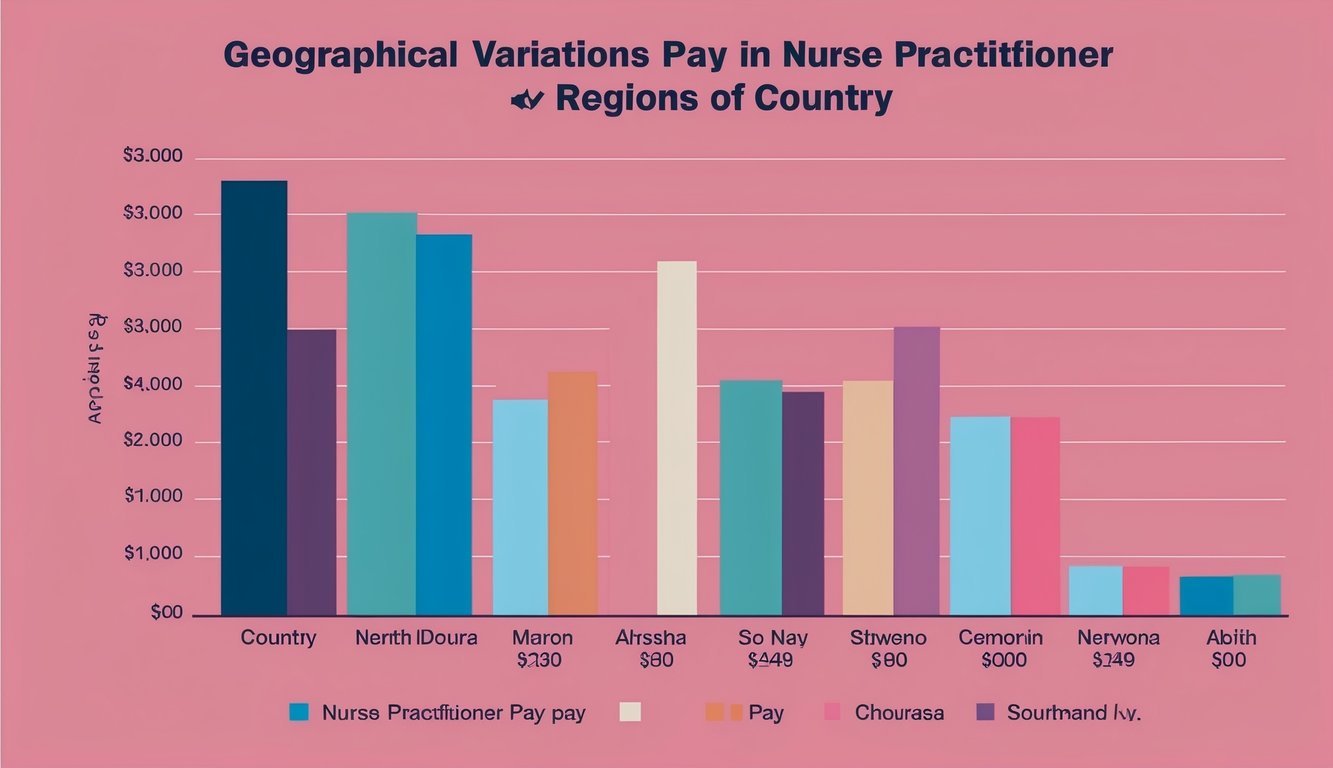As you consider a career in healthcare, you might wonder about the financial potential of becoming a nurse practitioner. The United States has an average annual salary for nurse practitioners of approximately $128,104.
This salary varies based on location, specialization, and experience.
This competitive salary reflects the crucial role nurse practitioners play in patient care.
In different states, salaries can differ significantly.
For example, nurse practitioners in New York can expect to earn an average of $142,830 annually, whereas those in Alabama may earn around $110,020.
Understanding these regional differences can help you make informed choices about your career path.
With opportunities for growth and specialization, a career as a nurse practitioner not only offers financial stability but also the chance to make a meaningful impact in the healthcare sector.
Overview of Nurse Practitioner Salary
Understanding nurse practitioner salaries is crucial for aspiring NPs and those considering a career shift.
Factors such as location, experience, and specialty play significant roles in determining your earning potential.
National Average Salary
According to the U.S. Bureau of Labor Statistics, the average annual salary for nurse practitioners is approximately $126,260.
This figure can vary widely based on various factors, including state and work environment.
| State | Average Salary |
|---|---|
| California | $145,979 |
| New York | $134,761 |
| Texas | $121,247 |
| Florida | $116,078 |
New nurse practitioners can expect starting salaries around $107,310 in states like California.
Working in high-demand facilities such as hospitals often leads to higher compensation.
Factors Affecting NP Salaries
Several elements influence your salary as a nurse practitioner. Location is one of the most significant factors, with states like California offering some of the highest salaries.
Experience and specialization also come into play.
NPs in specialized fields, such as pediatrics or acute care, typically earn more than those in general practice.
Additionally, the type of employer can affect your salary.
For instance, NPs working in hospitals may earn higher wages compared to those in outpatient care or educational settings.
Consider all these factors to assess your potential earnings effectively.
Geographical Variations in NP Pay

The salary of nurse practitioners can vary significantly based on location.
Understanding these geographical differences is crucial for those considering a career as an NP or for those seeking to negotiate their salaries.
Highest-Paying States for NPs
California consistently ranks as the highest-paying state for nurse practitioners.
Here, NPs can earn an average annual salary of approximately $161,540.
Other top-paying states include:
| Rank | State | Average Salary |
|---|---|---|
| 1 | California | $161,540 |
| 2 | New York | $151,830 |
| 3 | Massachusetts | $145,600 |
| 4 | Oregon | $136,390 |
| 5 | Alaska | $134,450 |
These figures illustrate the substantial earning potential in these states.
Urban centers within these states often offer even higher salaries due to increased demand for healthcare services.
Nurse Practitioner Salary by State
Nurse practitioner salaries can vary widely across the United States.
Some states, like Tennessee, offer significantly lower average salaries, approximately $105,600 annually.
Below is a snapshot of NP salaries in select states:
| State | Average Salary |
|---|---|
| Tennessee | $105,600 |
| Florida | $112,890 |
| Texas | $118,430 |
| Illinois | $126,950 |
| Washington | $133,890 |
It’s also important to note that metropolitan areas generally provide higher salaries compared to rural regions.
For example, Northern California boasts some of the highest metropolitan salaries for NPs, making it a desirable location for those in the profession.
Understanding these geographical pay variations can guide your career decisions and salary negotiations.
For more insights on NP salaries, visit Nurse Journal.
Influences on NP Earnings
Your earnings as a nurse practitioner can be affected by various factors including your level of education, areas of specialization, professional experience, and the regulation of practice authority in your state.
Understanding these influences can help you make informed decisions about your career path.
Education and Specializations
The level of education you pursue can significantly impact your earnings.
Most nurse practitioners hold either a Master of Science in Nursing (MSN) or a Doctor of Nursing Practice (DNP) degree.
Typically, those with a DNP may command higher salaries due to advanced clinical training and leadership skills.
Additionally, your chosen specialty also plays a crucial role.
Some high-paying specialties include:
| Specialty | Average Salary |
|---|---|
| Acute Care Nurse Practitioner | $157,580 |
| Orthopedic Nurse Practitioner | $100,035 |
| Women’s Health Nurse Practitioner | $101,569 |
By selecting a high-demand specialty, you can enhance your earning potential.
Experience and Practice Authority
Your years of experience also influence your salary as a nurse practitioner.
Generally, more experienced NPs earn higher salaries due to their advanced skills and knowledge.
For example, entry-level nurse practitioners may start with salaries around $90,000, while those with several years of experience can earn over $130,000.
Additionally, practice authority varies by state.
Some states grant full practice authority, allowing NPs to diagnose and treat patients independently.
In contrast, others may impose limitations that could affect your ability to earn higher wages.
Check local regulations to understand how this might impact your career and earning potential.
The Role of Market Factors
Market factors significantly influence the earning potential and job opportunities for nurse practitioners.
An aging population and nursing shortages create a demand that directly impacts salaries and employment various aspects of the field.
Aging Population and Demand
The growing aging population contributes to an increased demand for healthcare services.
As individuals age, they often experience more chronic health issues requiring ongoing management, creating a need for healthcare providers.
Nurse practitioners (NPs) play a vital role in delivering care across various settings, including primary care and acute care facilities.
According to the U.S. Bureau of Labor Statistics, the demand for NPs is projected to grow by approximately 40% from 2021 to 2031.
This surge is largely driven by the need to provide care for older adults who may have limited access to traditional physician care.
As a result, NPs can expect competitive salaries reflecting this growing demand.
Nursing Shortage Impact
The nursing shortage further amplifies the role of nurse practitioners in the healthcare system.
Many regions experience significant gaps in staffing, leading to an increased reliance on NPs to fill these roles.
The shortage is attributed to various factors, including an aging workforce and insufficient nursing graduates entering the field.
In response to this shortage, healthcare facilities often offer higher salaries and attractive benefits to recruit NPs.
According to a recent report, NPs earn an average annual salary of $126,260, with some states reporting salaries exceeding $140,000.
This competitive compensation is designed to entice practitioners to fill critical roles in the healthcare system, making it essential for you to stay informed about salary trends in your area.
Enhancing NP Compensation
Increasing your earning potential as a nurse practitioner involves strategic approaches such as effective salary negotiation.
Understanding the factors that influence your pay can help you secure a more favorable compensation package.
Effective Salary Negotiation
Maximizing your earning potential as a nurse practitioner requires effective salary negotiation.
Start by researching typical salaries in your state or specialty.
For example, the U.S. Bureau of Labor Statistics reports the average annual salary of $126,260.
Prepare a list of your qualifications, experience, and any relevant certifications.
Presenting this information strengthens your case during negotiations.
You can also emphasize the demand for nurse practitioners and how your skills meet that demand.
Practice your negotiation skills with peers or mentors.
Be ready to discuss benefits, bonuses, and other forms of compensation.
Don’t hesitate to ask for what you deserve based on market data and your personal worth.

